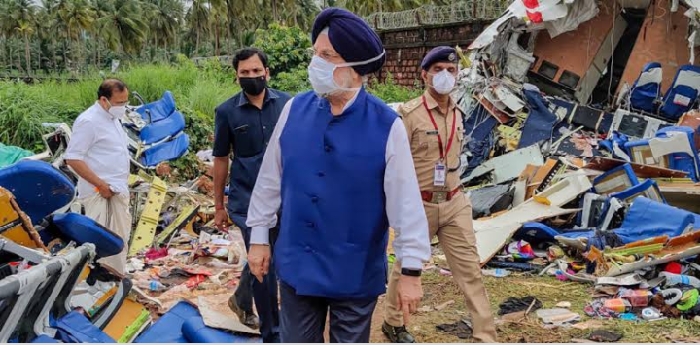Indore/Bhopal, August 30: In what proved to be a major embarrassment for the party, about 200 Rashtriya Swayamsevak Sangh (RSS) workers attacked the Bharatiya Janata Party office in Indore on Tuesday night. For the RSS, the attack was to “teach the errant BJP a lesson”, but the BJP was at a loss to even react, not to mention lodging a complaint.
A local RSS leader said, “If a child starts eating mud, what will the mother do? She will not watch quietly, she will slap the child. And that is what the RSS has done.” It turned out that the ‘parent’ was angry with the ‘child’ over the transfer of a police officer credited with acting against a criminal.
On Tuesday night, the Sangh workers barged into the BJP party office at Jaora compound and ransacked the three-storey office. The few office staffers and party workers who were present either hid or ran away. Angry RSS workers raised slogans against state industries minister Kailash Vijayvargiya and MLA Ramesh Mendola and burnt chief minister Shivraj Singh Chouhan’s effigy.
Meanwhile, BJP leaders, including state president Prabhat Jha, chose to keep mum on the issue, given the sensitivity of the matter. This line of action, or rather inaction, was decided at a series of meetings held at the CM’s residence in Bhopal. Indore city unit president Shankar Lalwani was called to Bhopal to explain the situation. Apart from the CM, Jha and state BJP general secretary (organisation) Arvind Menon were also present at the meetings.
“This is an unfortunate incident. It is our internal matter. We briefed the CM about it,” Lalwani told HT RSS workers, however, continued to be vocal. “It’s about peace and order. Goonda elements are dominating. What happened was a reaction to the same,” said RSS’ Malwa Prant Sanghchalak Laxman Rao Nawathe.
Why RSS is angry?
The RSS is angry over additional SP Rakesh Singh’s transfer around a month ago. Singh had booked Manoj Parmar, a criminal, who had earlier accused BJP MLA Sudarshan Gupta and Sangh Seva Pramukh, Indore Mahanagar, Gopal Goyal, among others, of shooting at him while he was taking part in a religious procession on July 23. Parmar is supposed to have acted at the behest of state industries minister Kailash Vijayvargiya and MLA Ramesh Mendola.
![]()






Comments
One more measurement term you may hear with respect to track is code.
my blog post; mth trains 2012 catalog (Sebastian: http://s3.amazonaws.com/traintoy/index/77.html)
Do youu have any video of that? I'd care to fid out more details.
my webpagfe :: eco
cleaning products uk: http://www.blackplanet.com/your_page/blog/view_posting.html?pid=3911871…
Use this info to tailor your everyday diet program
for weight-loss.
Also visit my web-site - diet plans for women to lose weight fast: http://s3.amazonaws.com/beskiny/index/5.html
Add new comment